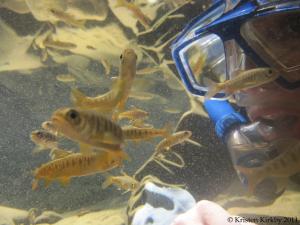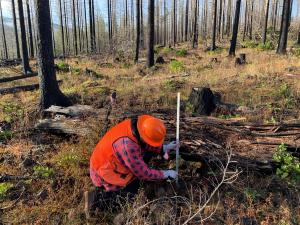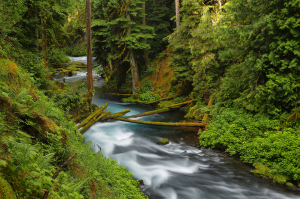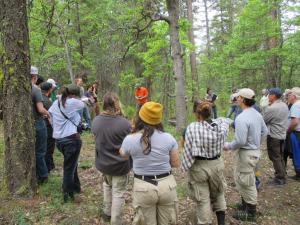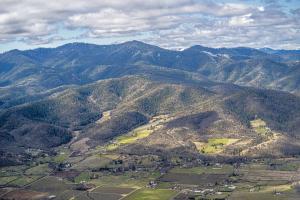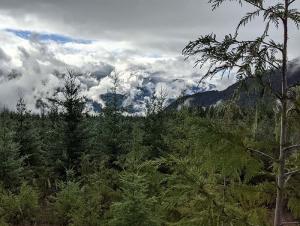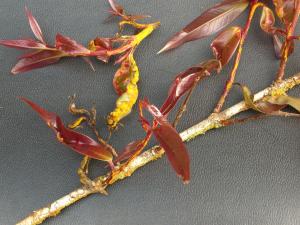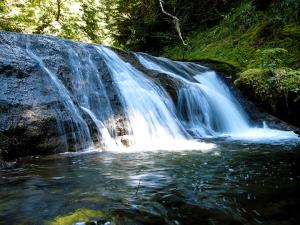Priority 1: Science to manage for resilient landscapes and provide ecosystem services
Our partners asked for social and ecological knowledge and tools to advance the resilience of forest, rangeland, and aquatic ecosystems; economies; tribal lands; and rural communities. For example, land managers want information and tools to create landscape conditions that favor desirable fire behavior at broad spatial scales. They also need techniques to overcome barriers that prevent widespread implementation of established beneficial management actions.
We define resilience as the capacity of social and ecological systems to return to a desired state following exposure to a stressor or disturbance. In most dry forest types in the Western United States, postfire forest resilience has declined. In some areas, forest condition is declining despite restoration efforts. There is also broad scientific agreement that fire is one of the most essential influences on forests in the Western United States and that it needs to be restored to most landscapes by using prescribed fires under specific conditions.
Outcomes of work under this priority
- Basic knowledge, applied science, and cutting-edge tools to enable decisionmakers to take actions that better the lands they manage for multiple uses, even in the face of a fundamentally uncertain future.
- Information to help communities prepare for more wildfire and understand how climate change will alter future fire regimes.
- Information to support shared stewardship goals and management actions aimed at improving forest, range, and aquatic ecosystem conditions, including restoration of fire-prone forests, developing ecosystem resilience after fires, and restoring degraded stream systems.
Features
-
Feature Story
-
Feature Story
-
Feature Story
-
Feature Story
-
Feature Story
Events
Projects
-
Project
-
Project
-
Project
-
Project
-
Project
-
Project
-
Project
-
Project
-
Project
-
Project
-
Project
-
Project
-
Project
-
Project
-
Project
Research Highlights
-
Research Highlight
-
Research Highlight
-
Research Highlight
-
Research Highlight
-
Research Highlight
-
Research Highlight
-
Research Highlight
-
Research Highlight




